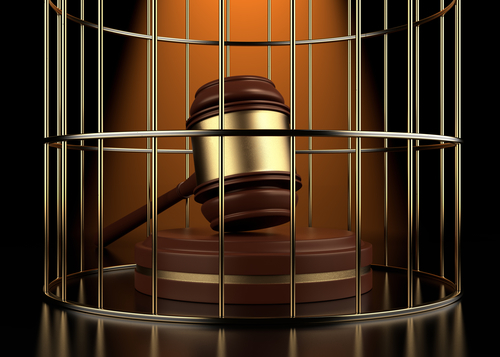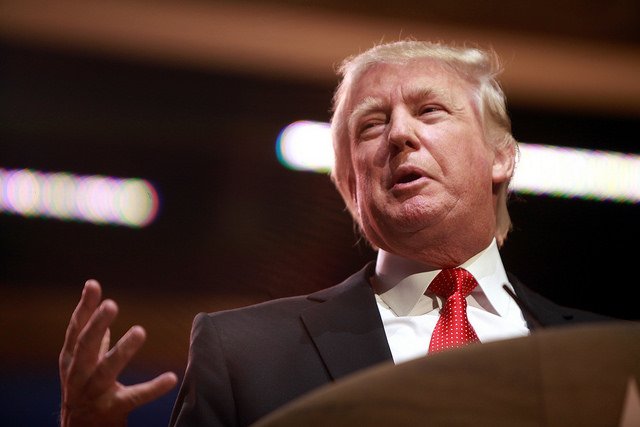[dc]O[/dc]n Sunday, George Stephanopoulos, asked presumptive Democrat presidential nominee Hillary Clinton whether she agreed with the Supreme Court’s 2008 ruling in Heller that private citizens can keep guns in their homes.
Not satisfied with her indirect answer, Stephanopoulos asked her directly, “Do you believe their conclusion that the right to bear arms is a constitutional right?”
Clinton responded, “If it is a constitutional right, then it, like every other constitutional right, is subject to reasonable regulation. And what people have done with that decision is to take it as far as they possibly can and reject what has been our history from the very beginning of the Republic, where some of the earliest laws that were passed were about firearms. So I think it’s important to recognize that reasonable people can say, as I do, responsible gun owners have a right. I have no objection to that. But the rest of the American public has a right to require certain kinds of regulatory, responsible actions to protect everyone else.” (Emphasis added.)
Constitutional rights, particularly those in the Bill of Rights, which consist of the first ten amendments to the United States Constitution, are guarantees of personal freedoms and are expressed in terms of the government’s limited powers. Unlike many other nations where government dispenses rights to the people, under American law people are presumed to be born with natural rights that are not subject to governmental interference.
The right to bear arms is enshrined in the Second Amendment while the First Amendment includes freedom of speech, freedom of the press, freedom of the free exercise, and prohibitions on governmental establishment of religion. These and other rights, including but not limited to not being required to testify against oneself, freedom from unreasonable search and seizure, etc., could be controlled or limited by the government under a “reasonable regulation” scenario.
While Clinton’s words were specifically about gun rights, an issue in a culture prone to violence, Clinton also implied that all constitutional rights are subject to regulation – an apparent shift away from the traditional paradigm of natural rights.
The doctrinal term “reasonable regulation” in connection with the Second Amendment did not originate with Clinton but was part of the general discussions surrounding the District of Columbia v. Heller (2008) case, in which the Supreme Court overturned a District of Columbia gun control law. In fact, the Heller majority made quite the opposite finding that the Second Amendment should not be subject to a simple “rational basis test” or “interest-balancing test.”
Instead, Justice Antonin Scalia, in the Court’s opinion writes, “We know of no other enumerated constitutional right whose core protection has been subjected to a freestanding ‘interest-balancing’ approach. The very enumeration of the right takes out of the hands of government—even the Third Branch of Government—the power to decide on a case-by-case basis whether the right is really worth insisting upon. A constitutional guarantee subject to future judges’ assessments of its usefulness is no constitutional guarantee at all. Constitutional rights are enshrined with the scope they were understood to have when the people adopted them, whether or not future legislatures or (yes) even future judges think that scope too broad.” [perfectpullquote align=”right” cite=”” link=”” color=”” class=”” size=””]”The very enumeration of the right takes out of the hands of government—even the Third Branch of Government—the power to decide on a case-by-case basis whether the right is really worth insisting upon.” [/perfectpullquote]
As originally drafted, the Constitution did not contain a Bill of Rights, not because they did not exist but because the act of defining them could be interpreted as limiting these rights.
Alexander Hamilton argued against their inclusion in Federalist No. 84 that, “bills of rights, in the sense and in the extent in which they are contended for, are not only unnecessary in the proposed constitution, but would even be dangerous. They would contain various exceptions to powers which are not granted; and on this very account, would afford a colorable pretext to claim more than were granted. For why declare that things shall not be done which there is no power to do? Why for instance, should it be said, that the liberty of the press shall not be restrained, when no power is given by which restrictions may be imposed? I will not contend that such a provision would confer a regulating power; but it is evident that it would furnish, to men disposed to usurp, a plausible pretense for claiming that power.”
In 2016, there is a constant tension between the Bill of Rights and government regulation. Some argue that the Religious Freedom Restoration Act, designed to protect the free exercise clause, goes too far, and they have introduced legislation to limit it. Clinton’s opponent, Donald Trump, argues that the freedom of the press goes too far. Freedom of speech quashed by enforcers of political correctness on college campuses. Despite Heller, the right to bear arms is facing clear challenges in the 9th Circuit. Courts are deciding whether the police can search cell phones.
If the Bill of Rights only designates areas over which the government has proper control, and can dispense legal “rights” at its pleasure, then there are no rights – just regulations. On the other hand, if these are in fact natural rights, then they belong to the people because of their birth and are not to be easily taken away by regulation or any other means.
While the executive branch may consistently push for regulatory control to the fullest extent possible, the courts are most often charged with describing the parameters of the way that regulations interface with natural rights and to ensure that the wilderness and unpredictability of natural rights are protected to the fullest extent possible.
While it tends to raise the ire of secularists and humanists, there is a benefit to the mention of God in the Declaration of Independence. By including God, the drafters demonstrate that these rights do not come from the current government, but rather from a source with which government dares not interfere – “the Laws of Nature and of Nature’s God.”
“We hold these truths to be self-evident, that all men are created equal, that they are endowed by their Creator with certain unalienable Rights, that among these are Life, Liberty and the pursuit of Happiness.”
The signers of the Declaration intended to place these natural rights out of the reach of any government leader, and this continued through the formation of the Constitution and the Bill of Rights.
Excepting the limited approach of “time, place, and manner restrictions,” these rights should not be subjected to regulation, reasonable or otherwise. Opening an argument that all rights are subject to regulation portends a substantial constitutional shift that may be on the horizon.
###
Holding: Private citizens have the constitutional right to keep guns in their homes.


